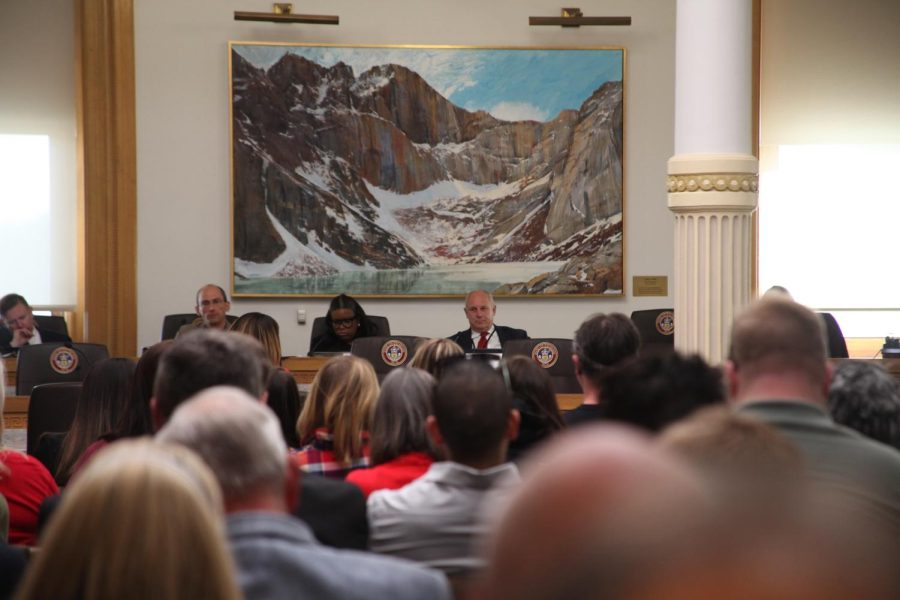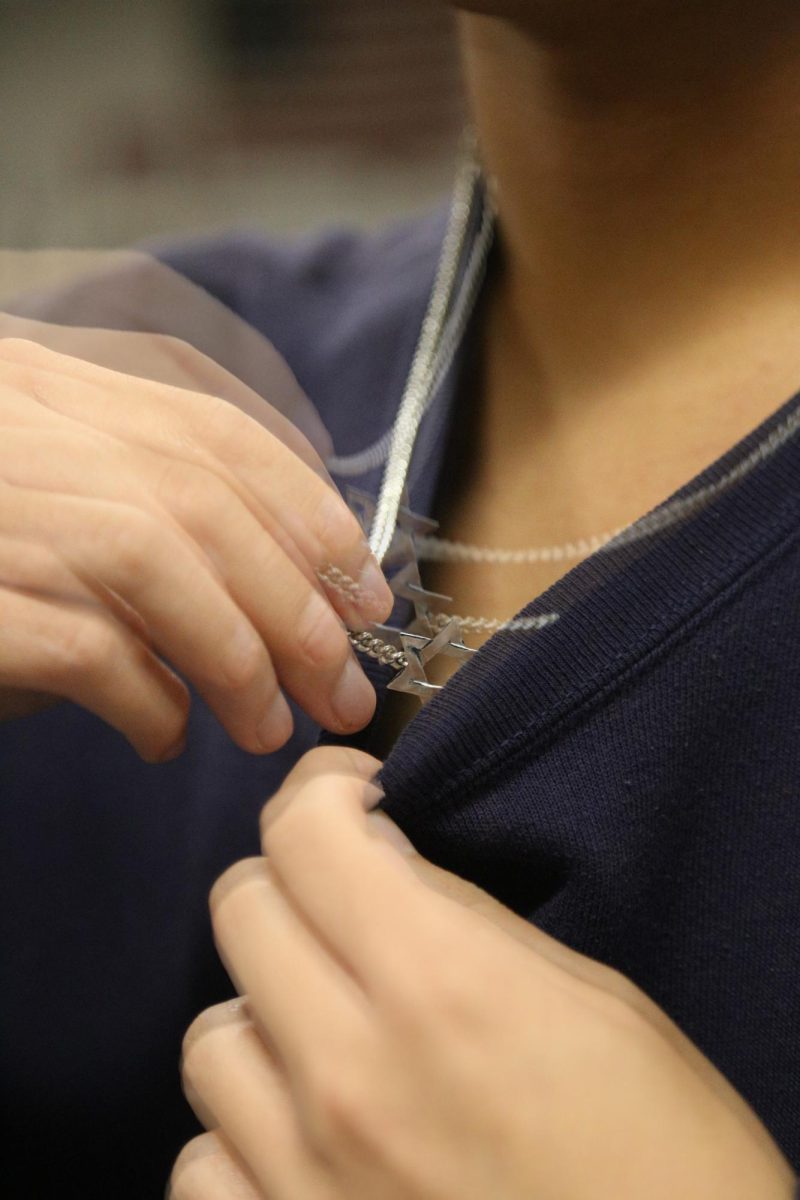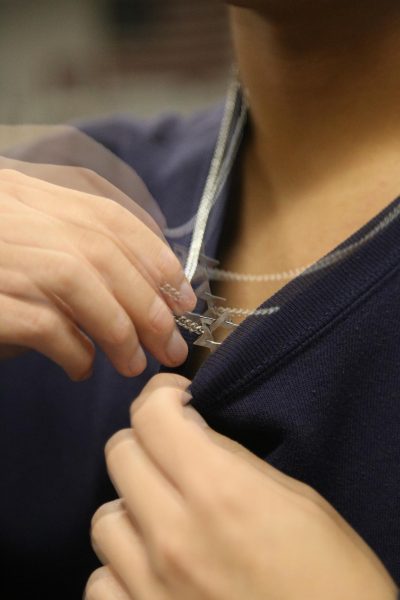The Breaking Point: Colorado Legislators Advocate For Gun Control Policy
Representative Bob Marshall (D-HD43) watches Representative Epps’ opening statement for HB-1230 on April 19. 1230 would have banned the sale and transfer of assault weapons in Colorado, but failed 6 – 7 on April 20.
May 1, 2023
Over the course of the Colorado legislative legal session, state lawmakers have passed a heavy package of gun control bills, most of which include regulations surrounding licensing, age restrictions, and waiting periods after purchasing. The state has treated these bills with extreme urgency, especially following a major upswing in mass shootings and gun violence across the country.
Bills that worked to increase regulations surrounding gun purchases, like Senate Bill 23-169, which raises the minimum age to purchase a firearm to 21 years, and Senate Bill 23-170, which extends extreme risk protection order availability, all came after a mass shooting at an LGBTQ+ club in mid-November and two shootings involving Denver East High School in late February and March.
These laws will work to align Colorado with other anti-gun violence strongholds, like California and Washington state. By preventing early access to guns and working to protect educators with extreme risk protection availability, Colorado lawmakers are attempting to set the state up to prevent mass shootings.
However, some of the most recent gun regulation proposals have been met with significantly less urgency than bills like 169 and 170. House Bill 23-1230, a bill that would have banned the sale or transfer of assault weapons in Colorado, failed in the democratic-majority House judiciary committee on early April 20 after a 6-7 vote.
During the 14-hour hearing, 300 people testified either for or against the bill, aiming to communicate their support or concerns to the representatives that would vote on it afterwards.
“I’ve long said that Democrats weren’t serious about a statewide ban on assault weapons. If we fail, I was right. I want to be wrong,” 1230’s prime sponsor Democrat Representative Elisabeth Epps said during the opening of 1230’s hearing.
Despite Epps’ and other testimonials, there were many who did not support 1230. Austin Hein, director of political operations for the National Association for Gun Rights, argued that gun control bills would not protect civilians. “[A semiautomatic ban] will leave law-abiding citizens defenseless to the alarming rise of violent crime caused by the progressive criminal justice reform,” he said.
On April 28, Democratic Governor Jared Polis signed four gun control bills into law, two of which work to increase the security around gun purchasing. The other bills being signed extend extreme risk protection to educators, and allow for firearm industries to be held liable for the misuse of their weapons.
SB23-168 allows for firearm industry members to be held liable in civil court for misuse of their products or services. SB23-170 allows for the extension of an extreme risk protection order to licensed educators. Two other bills; HB23-1219, which introduces a waiting period to purchase a firearm, and increasing the minimum age to purchase a firearm to 21 under SB23-169, will match other primarily liberal states’ policy on purchasing guns.
Colorado has long been a fierce protector of gun violence victims, and following the recent increase in mass shootings, most lawmakers have made it clear that it is their goal to continue to work towards preventing gun violence, despite the issue being a divisive subject between them.
This story was awarded Third Place General Feature from the Columbia Scholastic Press Association.




























![In a recent surge of antisemitism nationally, many have pointed towards social media and pop culture as a source of hate. “Many far-right people have gone on [X] and started just blasting all their beliefs, Sophomore Scott Weiner said.](https://unionstreetjournal.com/wp-content/uploads/2023/10/antisemitism-popculture-2-1200x675.jpg)









![In a recent surge of antisemitism nationally, many have pointed towards social media and pop culture as a source of hate. “Many far-right people have gone on [X] and started just blasting all their beliefs, Sophomore Scott Weiner said.](https://unionstreetjournal.com/wp-content/uploads/2023/10/antisemitism-popculture-2-600x338.jpg)
